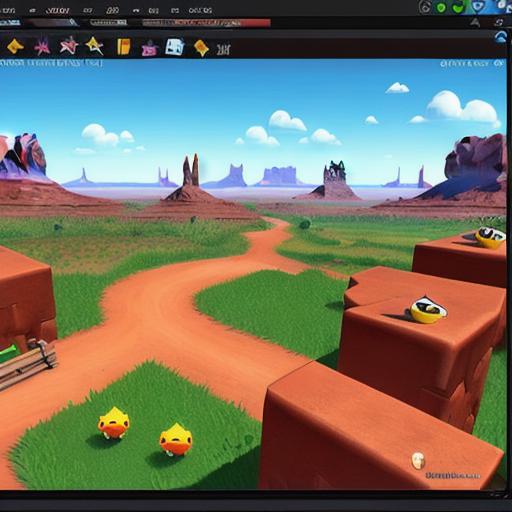When it comes to mobile game development, two powerhouses dominate the scene: Unity and Unreal Engine. Both engines offer unique features, advantages, and challenges for web developers. In this response, we’ll delve into their comparisons, providing examples and drawing conclusions.
**Unity:**

- Flexibility: Unity is a cross-platform engine with an extensive asset store and a large community. It supports 2D, 3D, VR/AR, and is popular for its ease of use and versatility, making it ideal for indie developers or small teams.
- Learning Curve: Unity’s interface is user-friendly with an intuitive editor. Its scripting language, C, is commonly used in web development, enabling a smoother learning experience for web developers.
- Performance: Unity offers good performance, particularly on lower-end devices, making it suitable for creating games that run smoothly across various platforms.
**Examples:**
- Temple Run
- Angry Birds
- Monument Valley

**Conclusion:**
Unity is a versatile and accessible choice for mobile game development. Its extensive community, ease of use, and performance make it an excellent option, especially for smaller teams or projects with tight deadlines.
**Unreal Engine:**
- Realistic Graphics: Unreal Engine is renowned for its high-quality, real-time graphics. It offers advanced rendering capabilities and post-processing effects, making it ideal for creating visually stunning games.
- Performance: While Unreal may demand more computational power than Unity, its performance optimization features make it suitable for high-end mobile devices and complex projects.
- Learning Curve: Unreal’s learning curve is steeper than Unity due to its advanced features and customizability, which may require a more significant investment in time and resources.
**Examples:**
- Fortnite
- Injustice: Gods Among Us
- Shadow Complex
**Conclusion:**
Unreal Engine is an excellent choice for mobile game development seeking high-quality graphics and performance optimization. Its advanced features may require a larger investment but can result in visually stunning games that stand out from the competition.
In conclusion, both Unity and Unreal offer unique advantages when it comes to mobile game development. The choice between the two ultimately depends on your project’s needs, resources, and goals. For smaller teams or simpler projects, Unity’s versatility and accessibility are valuable assets. For more complex, visually stunning games, Unreal Engine’s advanced features and high-quality graphics may be the better fit.
